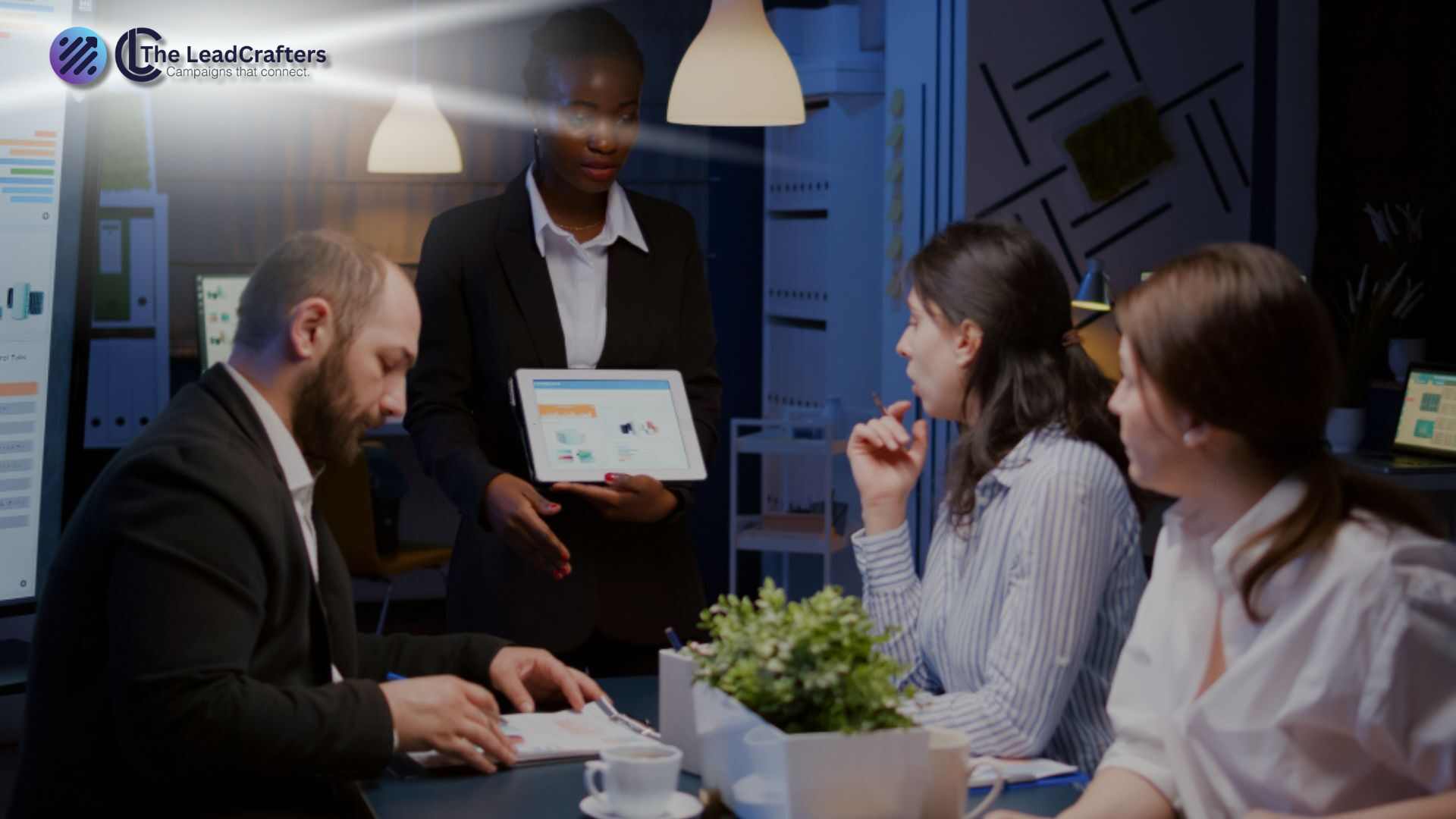In 2025, tech companies face a dynamic and competitive landscape that demands innovative and precision-driven lead generation strategies. Successful lead generation is no longer about casting a wide net; it revolves around targeting the right prospects, leveraging AI and automation, employing multi-channel outreach, and delivering engaging, personalized content. This comprehensive blog dives deep into smart lead generation strategies that tech companies can adopt in 2025 to drive growth, maximize ROI, and build lasting customer relationships.
Precision Prospecting with Sales Intelligence
The foundation of effective lead generation is precision prospecting. Instead of chasing every potential lead, tech companies must identify and engage high-potential buyers who closely match their Ideal Customer Profile (ICP). Advanced sales intelligence tools help companies access vast global contact databases, filter prospects by critical criteria such as revenue, company size, location, and technographic data (the prospect’s technology stack), and verify contact details to ensure outreach efficiency.
Using sales intelligence platforms like SMARTe, tech companies can refine their prospect lists for targeted outreach, increasing conversion rates by engaging only the most relevant contacts. Understanding a prospect’s technology environment allows messaging to be hyper-relevant and impactful, driving stronger engagement and higher-quality leads. This approach transforms lead generation from a broad outreach campaign into a focused engagement strategy that saves time and resources.
AI-Powered Lead Scoring and Predictive Insights
Artificial Intelligence (AI) has become a core component of modern lead generation. AI-powered lead scoring tools analyze behavioral data, engagement patterns, and demographic information in real-time to identify which leads are most likely to convert. Platforms such as Salesforce Einstein and HubSpot use predictive analytics to score leads, enabling sales and marketing teams to prioritize their efforts on prospects showing the highest intent.
This data-driven approach eliminates guesswork, reduces wasted outreach, and improves overall sales efficiency. Research from McKinsey indicates that AI integration in sales and marketing can boost revenue by 3% to 15% and enhance ROI by 10% or more. By focusing on warm leads ready to engage, tech companies optimize their funnel and accelerate conversion rates.
Interactive Content That Educates and Converts
Interactive content is reshaping B2B lead generation by delivering engaging and personalized experiences that static content cannot match. Tools such as ROI calculators, assessments, quizzes, and configurators invite prospects to actively participate, providing valuable insights into their needs and readiness to buy.
According to Demand Gen Report, 65% of B2B buyers prefer interactive and personalized content over traditional formats. Interactive content allows tech companies to gather critical data for lead scoring and segmentation while simultaneously educating prospects. This strategy leads to more qualified leads and higher conversion rates by fostering engagement and building trust early in the buying journey.
Multi-Channel Outreach Across Email, Social, and Events
In 2025, a multi-channel outreach strategy is essential for lead generation success. Buyers engage with content across multiple platforms before making purchasing decisions, including email, LinkedIn, online communities, virtual events, and short-form videos on YouTube and TikTok. Tech companies must adapt by maintaining a consistent presence across these channels.
LinkedIn remains a powerhouse for B2B lead generation, enabling sales teams to share valuable content, initiate conversations, and build professional relationships. Virtual events and webinars have also surged as interactive engagement tools. By combining these channels, tech companies stay top-of-mind and nurture leads through various touchpoints, enhancing visibility and trust.
Leveraging Video to Simplify and Stand Out
Video content continues to dominate as a preferred format for engaging B2B audiences. Short and focused videos such as product demos, customer testimonials, explainer clips, and personalized video messages resonate well with tech buyers seeking clarity and trust.
Wyzowl reports that 93% of B2B marketers experience excellent ROI from video campaigns. Incorporating video into email marketing and landing pages can boost click-through rates by up to 300%. Tools like Vidyard and Loom simplify creating personalized videos that humanize outreach efforts, foster stronger connections, and improve response rates.
Harnessing Lead Generation Software and Automation
Automation and lead generation software streamline and enhance every stage of funnel management. In 2025, tech companies benefit from integrated CRM systems, AI chatbots, email automation, and workflow tools that automate repetitive tasks and personalize follow-ups.
Leading solutions offer comprehensive capabilities — from prospect identification and lead capture to nurturing and analytics. Automation not only increases efficiency but also creates seamless experiences for prospects, accelerating their journey from interest to conversion.
Building a Robust Data-Driven Measurement Framework
Smart lead generation relies heavily on data measurement and continuous optimization. Tech companies must consistently track key performance indicators (KPIs) such as lead quality scores, conversion rates, engagement levels, and channel performance. Using analytics dashboards, teams can quickly identify successful tactics and areas for improvement.
Data-driven decision-making enables the reallocation of marketing budgets to high-performing channels and informs content strategy adjustments to boost effectiveness. In 2025, this agile approach is critical to sustaining competitive advantage.
Embracing Privacy and Compliance in Lead Generation
With evolving data privacy regulations globally, tech companies must embed compliance into their lead generation strategies. Transparency in data capture practices, obtaining explicit consent, and secure handling of customer information are mandatory to build and maintain trust.
Privacy-conscious companies differentiate themselves by respecting user preferences and adhering to laws such as GDPR or CCPA. Building lead generation processes with privacy-first principles safeguards brand reputation and ensures long-term customer loyalty.
Tech companies aiming for high-impact lead generation in 2025 must combine precision targeting, AI-enabled insights, engaging interactive content, multi-channel outreach, video storytelling, and automation. Coupled with robust measurement and compliance, these strategies will drive sustainable growth in a fiercely competitive market.
For further reading on powerful sales intelligence and lead prospecting, explore SMARTe’s platform features here. To stay ahead on AI tools revolutionizing lead generation, check out the latest insights on AI-powered solutions by Persana.
This comprehensive, smart approach to lead generation empowers tech companies to convert more prospects into loyal customers while reducing costs and maximizing ROI.



